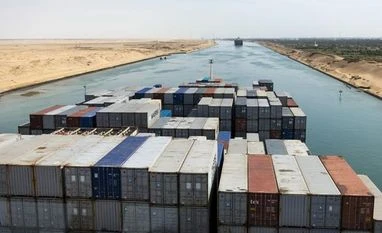Suez Canal blockage is a signal of what's ahead as ships get bigger
The 200,000-ton cargo ship currently lodged in the Suez Canal, bringing 13% of the world's trade to a halt, may be the biggest vessel to get stuck in a major waterway
)
Explore Business Standard
The 200,000-ton cargo ship currently lodged in the Suez Canal, bringing 13% of the world's trade to a halt, may be the biggest vessel to get stuck in a major waterway
)
Already subscribed? Log in
Subscribe to read the full story →

3 Months
₹300/Month
1 Year
₹225/Month
2 Years
₹162/Month
Renews automatically, cancel anytime

Over 30 premium stories daily, handpicked by our editors



News, Games, Cooking, Audio, Wirecutter & The Athletic

Digital replica of our daily newspaper — with options to read, save, and share



Insights on markets, finance, politics, tech, and more delivered to your inbox

In-depth market analysis & insights with access to The Smart Investor



Repository of articles and publications dating back to 1997

Uninterrupted reading experience with no advertisements



Access Business Standard across devices — mobile, tablet, or PC, via web or app
First Published: Mar 25 2021 | 8:10 AM IST